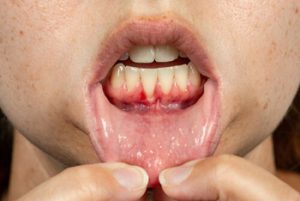Bad breath, also called halitosis, is one of those things nobody wants to talk about, but many people deal with it. Whether it’s a morning mouth issue or something more persistent, the good news is there are plenty of ways to fight bad breath and feel confident in your smile again.
Let’s explore what causes bad breath and, more importantly, how to get rid of it using practical steps, proper oral hygiene, and professional care.
So, What Actually Causes Bad Breath?
Before we talk about solutions, let’s take a moment to understand why your breath might smell bad in the first place.
1. Poor Oral Hygiene
2. Dry Mouth
Saliva plays a key role in clearing away leftover food particles and balancing acid levels in the mouth. When saliva flow is reduced, it creates an ideal environment for bacteria to thrive. This condition, referred to as dry mouth or xerostomia, can result from factors like dehydration, certain medications, underlying health conditions, or breathing through your mouth during sleep.
3. Certain Foods
Strong-smelling foods like garlic, onions, and spicy foods can cause temporary bad breath. They release sulphur compounds into your bloodstream, which are then expelled through your lungs.
4. Smoking and Tobacco Products
These contribute to mouth dryness, leave a lasting odour, and raise the risk of gum disease and inadequate oral hygiene.
5. Underlying Health Conditions
In certain situations, ongoing bad breath may be a sign of an underlying health issue like a sinus infection, diabetes, liver or kidney disease, or gastrointestinal disorders.
Start with the Basics: A Strong Oral Hygiene Routine
The best way to reduce bad breath is to maintain good oral hygiene. Let’s break that down into practical steps.
Brush Your Teeth Twice a Day
Brush all tooth surfaces gently using fluoride toothpaste and a soft-bristled toothbrush. Make sure to replace your toothbrush every three to four months.
Clean Your Tongue Too
A coated tongue can harbour bacteria and food debris. Gently use a tongue scraper or the back of your toothbrush to clear away build-up from the surface of your tongue. Tongue scrapers are especially useful for removing the thin layer of build-up that smells bad.
Don’t Forget to Floss
Flossing eliminates food particles between teeth where a brush can’t reach. It’s essential for preventing plaque build-up and keeping your gums healthy.
Rinse, But Choose Wisely
Use an antibacterial mouth rinse to kill bacteria and freshen your breath. Avoid rinses that only mask odours; look for products with ingredients that target the root cause of bad breath.
Stay Hydrated: Saliva Is Your Mouth’s Best Friend
Here’s how to encourage more saliva production:
- Drink plenty of water throughout the day.
- Chewing sugar-free gum or enjoying sugar-free mints can encourage saliva production and help maintain moisture in your mouth.
- Limit how much caffeine and alcohol you consume, as both can lead to a dry mouth and worsen bad breath.
- If you tend to breathe through your mouth during sleep, using a humidifier can help keep the air moist and prevent dryness.
Eat Smart for Fresher Breath: What to Enjoy and What to Skip
What you eat doesn’t just affect your overall health; it can also play a big role in how your breath smells. Some foods naturally help clean your mouth and fight odour, while others can make bad breath worse. Here’s a guide to the foods that freshen your breath and the ones best left off your plate.
Foods That Freshen Breath
Some foods naturally help keep your mouth clean and fresh:
- Crunchy fruits and veggies like apples, celery, and carrots help remove plaque.
- Herbs like parsley and mint can temporarily mask odours.
- Green tea contains polyphenols that help fight off bacteria and reduce unpleasant breath odours.
Foods That Cause Bad Breath
Certain foods tend to leave a lingering smell:
- Garlic and onions
- Spicy foods
- Sugary foods (which fuel bacterial growth)
- Dairy products, which can lead to calcium deposits in the tonsils (tonsil stones)
If you’re eating garlic or other strong-smelling foods, brush your teeth and tongue afterwards or rinse your mouth.
Simple Daily Habits That Keep Bad Breath Away
Sometimes, it’s the little things that make the biggest impact. Alongside brushing and flossing, certain every day habits can go a long way in keeping your mouth fresh and your breath pleasant. Let’s take a look at a few simple changes that can support better oral health and help you stay confident throughout the day.
Chew Gum, But Make It Sugar-Free
Chewing gum helps stimulate saliva production and reduces dry mouth. Always go for sugar-free options to prevent feeding the bacteria in your mouth.
Avoid Smoking and Tobacco
Tobacco use can discolour your teeth, dry out your mouth, and lead to irritation of the gum tissue. Quitting smoking is one of the most effective treatments for bad breath caused by poor oral hygiene or dry mouth.
Clean Dental Appliances
If you wear dentures, mouth guards, or retainers, clean them daily. These appliances can trap bacteria and food particles if not properly maintained.
Professional Care: When to See Your Dentist
Even the best at-home routine can’t replace regular dental check-ups.
Visit your dentist regularly for:
- A professional cleaning session to eliminate built-up plaque and tartar.
- Checks for gum disease, tooth decay, and other causes of bad breath
- A personalised treatment plan if you suffer from chronic bad breath
Special Cases: What If It’s Not Your Teeth?
Sometimes, the source of bad breath isn’t your oral cavity. Here are some other culprits:
Tonsil Stones
Small calcium deposits that form in the crevices of your tonsils can trap bacteria and smell unpleasant. If you experience a lingering bad taste or odour along with small white spots at the back of your throat, this may be the underlying issue.
Sinus or Respiratory Infections
Postnasal drip from a sinus infection can collect in the back of your throat, feeding bacteria that cause odour.
Gastrointestinal Issues
Conditions like acid reflux or digestive disorders may allow odours from the stomach to make their way to your mouth. If your dentist has ruled out oral causes, it’s worth speaking to a healthcare provider.
Home Remedies That Actually Work
There’s no shortage of home remedies for bad breath, but only some are supported by evidence.
Here are a few that may help:
- Saltwater rinse: Helps reduce bacteria and inflammation.
- Baking soda rinse: Neutralises acids and reduces bacteria.
- Green tea rinse: Offers antibacterial properties and freshens breath.
Remember, home remedies are not a replacement for proper oral hygiene or professional dental care.
Avoiding Common Mistakes That Make Breath Worse
Even people who are diligent about brushing their teeth may miss the mark by making these mistakes:
- Skipping tongue cleaning
- Using alcohol-based mouth rinses (which can dry out your mouth)
- Not replacing your toothbrush often enough
- Only brushing once a day
- Ignoring signs of gum disease, like bleeding gums or swelling
Bad Breath in the Morning: Why It Happens
Waking up with bad breath is common. During sleep, saliva flow decreases, which allows bacteria to thrive. If you sleep with your mouth open or breathe through your mouth, this can make things worse.
To reduce morning breath:
- Brush and floss before bed
- Clean your tongue
- Avoid strong-smelling or sugary foods before sleep
- Stay hydrated throughout the day
Your Step-by-Step Action Plan to Fight Bad Breath
If you’re committed to tackling bad breath for good, here’s a straightforward plan to guide you:
- Brush your teeth twice every day with fluoride toothpaste.
- Floss daily to remove trapped food particles and plaque.
- Clean your tongue using a tongue scraper or soft brush.
- Use an alcohol-free antibacterial mouth rinse.
- Stay hydrated by drinking plenty of water.
- Chew sugar-free gum to keep saliva flowing.
- Avoid strong-smelling and sugary foods when possible.
- Visit your dentist regularly for routine check-ups and professional dental cleanings.
- Address dry mouth by avoiding alcohol, caffeine, and smoking.
- Look out for signs of other conditions like sinus infections or digestive issues.
Frequently Asked Questions
Can dry mouth really cause bad breath?
Yes. A lack of saliva enables bacteria to grow unchecked, leading to unpleasant odours and a coated tongue.
Do certain medications cause bad breath?
Some medications can reduce saliva production or create odour as a side effect, contributing to dry mouth and bad breath.
Can tonsil stones be a cause of bad breath?
Absolutely. Tonsil stones can trap bacteria and food debris, resulting in a persistent foul smell and bad taste.
Does a poor diet affect breath quality?
Yes. Diets high in sugary foods or lacking in fresh fruits and vegetables can contribute to plaque build-up and bad breath.
Can bad breath come from the stomach?
In some cases, yes. Conditions like acid reflux or digestive issues can cause odours that travel up the oesophagus and into the mouth.
Are alcohol-based mouthwashes bad for dry mouth?
They can be. Alcohol can further dry out your mouth, so it’s best to choose an alcohol-free mouth rinse if you suffer from dry mouth.
Can using a humidifier really help with bad breath?
Yes. A humidifier can improve moisture levels in the air, especially at night, helping prevent dry mouth that leads to morning breath.
Final Thoughts: Fresh Breath Starts with Daily Care
Bad breath doesn’t have to be something you just “live with.” With the right care and a bit of consistency, you can freshen your breath and feel more confident every day.
If you’re concerned about persistent bad breath, contact Available Dental Care at (02) 4062 8763 or (02) 4628 0573 to book a consultation and get the personalised care you need.
References
- Cleveland Clinic. (n.d.). Bad breath (halitosis). https://my.clevelandclinic.org/health/diseases/17771-bad-breath-halitosis
- FDI World Dental Federation. (n.d.). How to practice good oral hygiene. https://www.fdiworlddental.org/how-practice-good-oral-hygiene
- FamilyDoctor.org. (n.d.). Hydration: Why it’s so important. https://familydoctor.org/hydration-why-its-so-important/
- Oral Health Foundation. (n.d.). Sugar-free chewing gum. https://www.dentalhealth.org/sugar-free-chewing-gum




